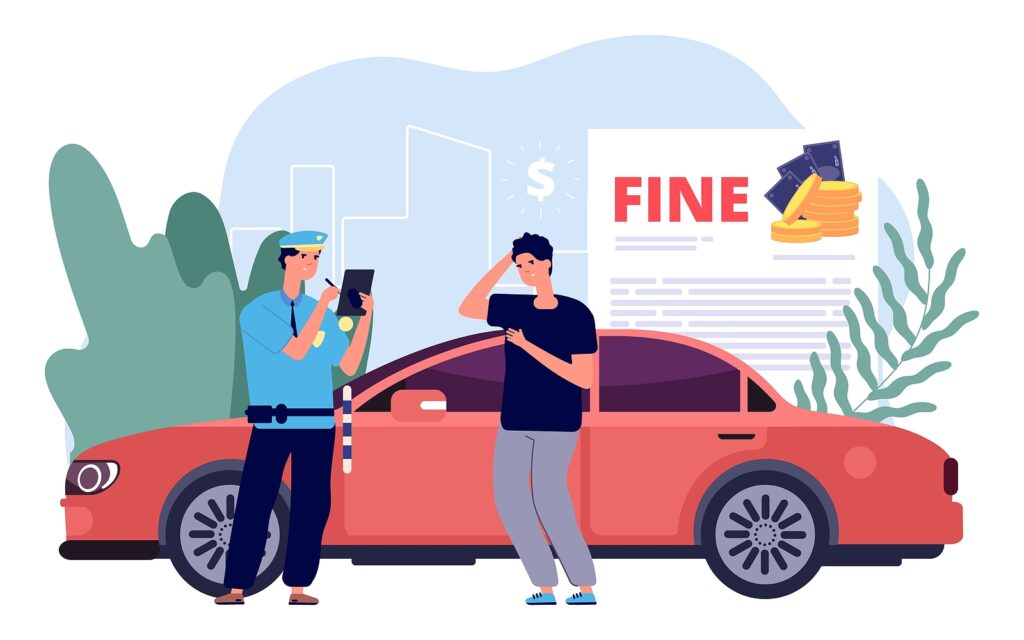After being arrested and charged with a crime in Indiana, it is common to be filled with all sorts of questions. Oftentimes, defendants begin thinking about their legal history. Many criminal defendants question if previous traffic violations and driving-related offenses will affect the outcome of their current criminal case. Fortunately, there is a pretty clear cut answer to this common inquiry.
Continue reading to learn when past traffic violations might be used against a criminal defendant during their trial, plus how to avoid the maximum penalties for your criminal charges.

The Difference Between Civil Court and Criminal Court
When it comes to understanding how previous traffic offenses and violations might be used against a defendant in criminal court, it is important to understand the difference between civil and criminal laws and court systems.
Civil law is the area of the American legal system that manages disputes or wrong-doings between private parties. Accordingly, civil court, also known as small claims court, deals mostly with civil cases disputing small amounts of money. Cases typically adjudicate claims regarding property damage, family law, divorce, property disputes, breach of contracts, landlord cases, wrongful terminations, personal injuries, and similar legal matters.
There are two primary types of criminal courts in the United States, state court and federal court. State courts are established by the state and may include local courts as well. Local courts are usually established by individual cities, counties, townships, or other types of common municipalities. They adjudicate cases that involve crimes that break laws set and enforced by the state (also known as state laws). In contrast, federal courts are established under the United States Constitution, and adjudicate cases that involve crimes that break laws passed by Congress.
Will Your Traffic and Driving History Have an Impact?
When it comes to traffic violations and offenses, the majority of them will fall under civil law, and therefore be dealt with in civil court. In most cases, traffic violations are dealt with at the county clerk’s office, courthouse, or the local BMV. Most of the time, violators simply need to mail in paperwork or fines to remedy any offenses. If you are somebody who has traffic violations on the record, it is not likely that they will be used for making any legal determinations during your criminal trial or sentencing.
When a Civil Case Can Become a Criminal Case
there are some traffic violations and offenses that can lead to criminal charges. In most cases, this includes offenses like, inebriated driving, drunk driving, pedestrian hit and runs, cyclist hit and runs, and causing a car accident as a result of punitive reckless driving. Not only can an offender face civil fines and penalties, but they can also be arrested and criminally charged for a DUI, leaving the scene of an accident, and more.
Are you worried about your pending criminal charges in Indiana? Contact Attorney David E. Lewis at 317-636-7514 to schedule a free initial consultation with a seasoned Indianapolis IN criminal defense lawyer you can trust. We also represent defendants charged in Indiana but who live in another state.
Related Posts:
FAQS About DUI Checkpoints
Can a DUI Charge Affect My Right to Child Custody?
Examples of Federal Laws That Conflict With State Laws
